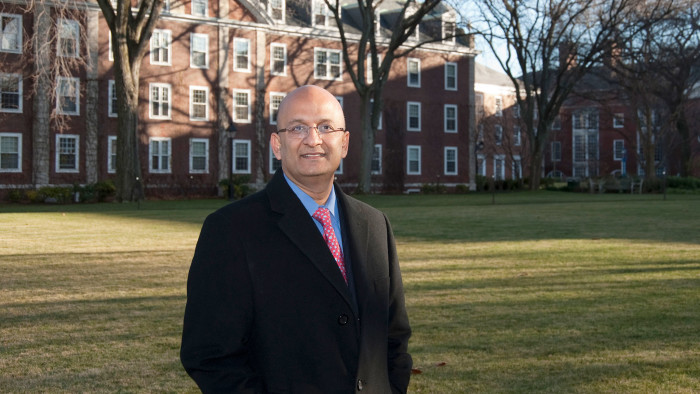Time to tackle workplace gender bias

Roula Khalaf, Editor of the FT, selects her favourite stories in this weekly newsletter.
Last spring, when Harvard Business School celebrated the 50th anniversary of the admission of women to our two-year MBA programme, I returned to the classroom to teach a newly written case study on women’s experiences at HBS. I wrote three dates on the board: 1963, the year eight women entered the first-year class; 1988, the midpoint between then and now, and 2013. I have very personal reflections on each of those years.
I was born roughly 50 years ago in India. My mother was 19 years old. She had aspired to be a doctor but instead entered into an arranged marriage with my father. In her lifetime she has never worked outside the home. She has no serious regrets about not becoming a doctor, yet now and then she has wondered what her life might have been like had she come of age in a different generation, when more choices were open to her.
In 1988, 25 years later, I arrived as a faculty member at HBS. At that point, women made up 25 per cent of the student body. During my early years of teaching, I would often seek advice from my wife, who had just earned her MBA and was beginning her professional career. Like my sister, a cardiologist, this generation felt they had professional choices that were much rarer in my mother’s generation.
Today the proportion of women in our programme has grown to 41 per cent. Yet there remain too few women in senior leadership roles in corporations. There are persistent inequities in wages and promotion opportunities. There is subtle and not so subtle bias in the workplace. What can we do to change that? Here are actions that HBS has started taking.
First, we can measure and manage the rate of achievement in our classrooms. Over the past three years, we have analysed gender differences in how students perform in the classroom. Since participation is a key factor in our grading system, we have tracked the calling patterns professors use and worked to help men and women participate effectively. By creating opportunities for every student to thrive, we have been able to make real progress toward closing the achievement gap.
Business schools can also improve the professional progress of women by engaging in cutting-edge scholarship. If our faculty can create new theories of strategy or governance, they can also devise new ways to approach the managerial challenge of creating full opportunities for both genders. For instance, my colleague Robin Ely has done groundbreaking research on how “second-generation” gender bias often erects invisible barriers that inhibit women’s development as leaders. We also are working to increase the number of women case protagonists. I am determined to focus our research energy to create better insight into the challenges facing women – and to identify solutions.
…
The third effort is to get men more invested in this issue. This is already beginning to happen. When I speak about “work-family” issues with students, it’s striking that men are just as concerned as women. Men realise they will be equally affected if organisations do not find ways to help families (not just women) manage career trade-offs. This year at HBS, the Women’s Student Association created a programme to designate “man-bassadors”– men who join the WSA and participate in the activities and discussions it sponsors. Steps such as these can move this dialogue beyond what some may think of as stereotypically “women’s issues”. During our Women’s 50th celebration, the most encouraging thing I encountered was students’ persistent optimism that the problem is solvable. They can imagine a day when this conversation is no longer necessary.
As someone who joined this institution looking and feeling different from the majority, I am grateful for the opportunities I received to succeed beyond my dreams. So it is important to me that this school commits itself to addressing this complex issue. If HBS can figure out how to address it on our campus, we can show students how to lead change in their own organisations, and we may end up being a beacon for business.
The author is the dean of Harvard Business School. To keep up-to-date with this issue participate in our live blogs and read further opinions as we publish them during the week.
Comments